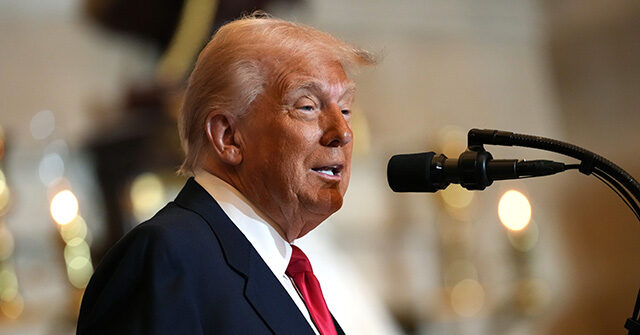President Donald Trump, who in his wheeling and dealing developer years in New York was never described as a religious man, posted a particularly reverent post to the nation for Easter Sunday.
Posting on Truth Social, Trump wrote, “Melania and I would like to wish everyone a very Happy Easter! Whether you are heading out to Church or, watching Service from home, may this day be full of Peace and Joy for all who celebrate the Resurrection of Jesus Christ. HE IS RISEN!!”
The phrase “He is risen” is a significant one for Christians as it is stated in the present tense, signifying Christ is a living presence in the world and their lives. It’s a distinction typically only known to those who are more deeply committed to the Christian faith.
While Trump evoked the Bible frequently in both of his presidential campaigns, and has said he was raised as a Presbyterian, one of his biographers wrote that his church attendance as a young man was geared toward secular success.
Trump and his parents attended the Marble Collegiate Church, a New York congregation pastored by iconic minister Dr. Norman Vincent Peale. Trump was married in Peale’s church. His parents’ funerals were held there as well.
In 1952, Peale authored runaway secular best seller The Power of Positive Thinking. The book was translated into 15 languages and remained on the New York Times bestseller list for 186 weeks, selling 5 million copies right out of the gate. It remains published and influential today.
Gwenda Blair, author of The Candidate, credited Peale and his book with forging Trump’s never-give-up attitude as he tackled the cutthroat world of New York real estate. She argues it triggers Trump’s tendency to exaggerate and describe even losses as wins, a penchant that persists today.
However, Trump’s relationship with faith has changed since those Peale-inspired years. And it would be hard to describe his more recent religious observations as the kind of political theater many conservative politicians use to garner votes among the faithful.
Trump’s faith appears to have deepened since he was almost felled by a would-be assassin’s bullet in Butler, Pennsylvania, last year. He says it. Those close to him say it.
At the National Prayer Breakfast in February, Trump outright cited the assassination attempt. “It changed something in me, I feel,” he said. “I feel even stronger. I believed in God, but I feel much more strongly about it.”
Trump said during the joint session of Congress in March, “I believe that my life was saved that day in Butler for a very good reason. … I was saved by God to make America great again. I believe that.”
Lowell Cauffiel once wrote for Norman Vincent Peale’s Guidepost Magazine and is the best-selling author of Below the Line and nine other novels and nonfiction titles. See lowellcauffiel.com for more
Read the full article here
